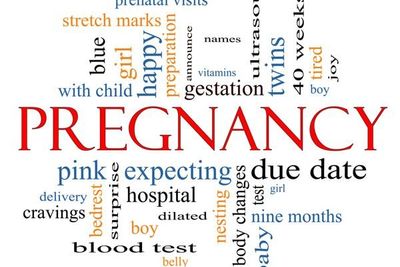You're pregnant! Congratulations! During your 40-week journey, you'll come up with lots of questions, some valid and some silly. To make sure the valid questions get the attention they deserve, I want to make sure you're aware of these three very important topics. Take note—and happy growing, Mama!
Am I eating enough protein?
Women need additional protein during pregnancy. And while moms-to-be have every intention of upping their protein portions, first-trimester nausea can quickly change eating habits. If you're having difficultly filling nutritional gaps with food, you can try supplementing. There is a terrific product called Mommi 3-in-1. It's the first-ever complete prenatal protein shake with all the vitamins, protein and DHA a pregnant woman needs. Each serving contains 25 grams of protein, 100% daily value of 14 essential prenatal vitamins and 200 milligrams of DHA when prepared with 10 ounces of 1% milk. Best part: it comes in yummy chocolate and vanilla flavors. You get everything you need without the nausea! Win!
Should I receive prenatal testing?
During your 40 weeks, there will be moments of anxiety. And lots of wondering, “Is the baby healthy?” There are certain prenatal tests that can provide you answers. For example, Panorama is a noninvasive, highly accurate prenatal test that screens for several genetic conditions including Down syndrome, Edwards syndrome and Patau syndrome. The test can be administered as early as nine weeks gestation. These tests not only help expectant families prepare for future health implications involving their baby, but they may also provide reassurance that all is well with the baby. If you find yourself anxiety ridden, this test may be a good option for you. It's worth mentioning to your health care provider.
Should I consider cord blood banking?
A newborn's umbilical cord blood contains powerful stem cells that have been used for the treatment of more than 80 serious diseases and disorders in both adults and children. Cord blood banking is the process of retrieving the blood remaining in the umbilical cord and placenta in the moments after birth. Expectant parents only have one opportunity to save or donate the cord blood, and it is among the most critical decisions new mothers and fathers will make. To make an informed decision regarding their options, expectant parents should learn all they can about current therapies and future treatments using cord blood stem cells. Visit cordbankingbasics.com to learn more. If cost is an issue, some families have added this to their baby registry wish list.
This post was created with the support of Mommi 3-in-1, Natera prenatal testing and the Cord Blood Registry.


